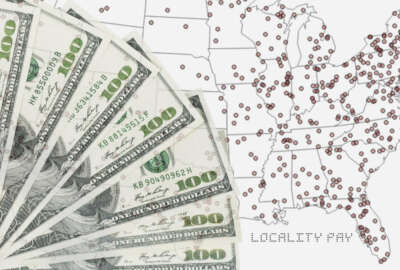
Inflation corrodes everything, including your old age
That 2.7 percent raise doesn't look like so much with prices on the rise. Inflation is scariest for retirees.
Stalin never actually said, “If only one man dies of hunger, that is a tragedy. If millions die, that’s only statistics.” Or if he did he, was restating a very old aphorism.
Whoever first expressed that idea, it came to mind from some of the emails we received after a column about the Windfall Elimination Provision (WEP) and the Government Pension Offset (GPO). The WEP limits Social Security benefits for people who had both federal and other jobs, if the federal was during the Civil Service Retirement System era. The GPO reduces Social Security benefits in proportion to public sector annuities, if the public sector salary was not subject to Social Security taxation.
Anyway, we reported a statistic: The two provisions — embedded in statute — affect about 1.9 million people, including some long-time federal employees. They get less Social Security than at least some of them think they should.
It’s all academic until you look at some of the individual situations, and when you think about pay and pensions in the lurid light of the inflation flames now licking at the economy.
One story comes from a 65-year-old retired teacher. He had to retire early because of an Alzheimer’s diagnosis. His teaching pension is therefore ten grand less a year that it would have been had he worked until now. His 40 quarters of work coming under the WEP rule means Social Security pays him $500 a month, not the $1,000 he otherwise would have received.
You can’t exactly say the authors of the WEP and GPO legislation were stingy-minded skinflints. The logic of what they were trying to do is clear: ensuring fair distribution of benefits. Consequences vary though, and distortions can creep into any system over time. Plus, no one can anticipate terrible rolls of the dice, like the teacher got. If nothing else, it pays to add in the Social Security implications of a job, if it’s not subject to the payroll tax and therefore will limit benefits down the line.
A long-shot legislative gambit to suspend WEP and GPO for four years in some ways is a referendum on Social Security itself. In reality a pay-as-you-go system, its premise is nonetheless that people and their employers pay in, and employees upon retirement receive benefits in proportion to what they paid in. What does it say if a certain few million beneficiaries get a bump for payroll taxes they did not put in? The answer carries big implications.
More mail came in about the 2.7% raise federal employees are receiving this year. Against the inflationary backdrop, it’s strengthened the idea that federal pay is keeping up neither with pay levels in the private sector nor with the cost of living.
One reader wrote, “This barely covers the cost-of-living expenses going up and the insurance providers raising our medical and dental insurance.” She added, “The federal government does not keep up with the private sector and a number of federal employees are barely getting by. It is almost like they punish you in this country if you have kids, especially three kids like myself.”
Others make a connection between retirement and what’s going on now. A federal employee from Hawaii noted that they get a combination of (untaxed) locality pay and cost-of-living-adjustments.
“But if you ask Hawaii federal workers the majority of us would rather receive 100% locality pay instead of a split between COLA and locality pay.” One reason: “COLA does not factor into an employee’s salary for retirement.”
The bigger theme here is that what you can accumulate while working will have a big impact in how your retirement will go. Hardly a profound insight, but it underscores the long-term trend away from employer-provided pensions and toward more self-reliance. Unfortunately, that’s a blade that doesn’t cut the same slice for everyone.
In his famous 1994 farewell letter to the nation, President Ronald Reagan revealed his own Alzheimer’s diagnosis, and his journey into the sunset of his life. It’s a grim diagnosis for anyone, but more bearable for people and families with serious means than for people like the schoolteacher whose career was cut by a decade. Believe me, at 66 and still working, I get it.
With prices on the rise seemingly across the board, both the current take-home and the future at-home can make you squirm.
Nearly Useless Factoid
In 1974, President Gerald Ford encouraged Americans to wear pins saying “WIN” or “Whip Inflation Now.” Many people, however, turned theirs upside down so they read “NIM,” meaning “Need Immediate Money.”
Source: Fact Retriever
Copyright © 2025 Federal News Network. All rights reserved. This website is not intended for users located within the European Economic Area.
Tom Temin is host of the Federal Drive and has been providing insight on federal technology and management issues for more than 30 years.
Follow @tteminWFED




